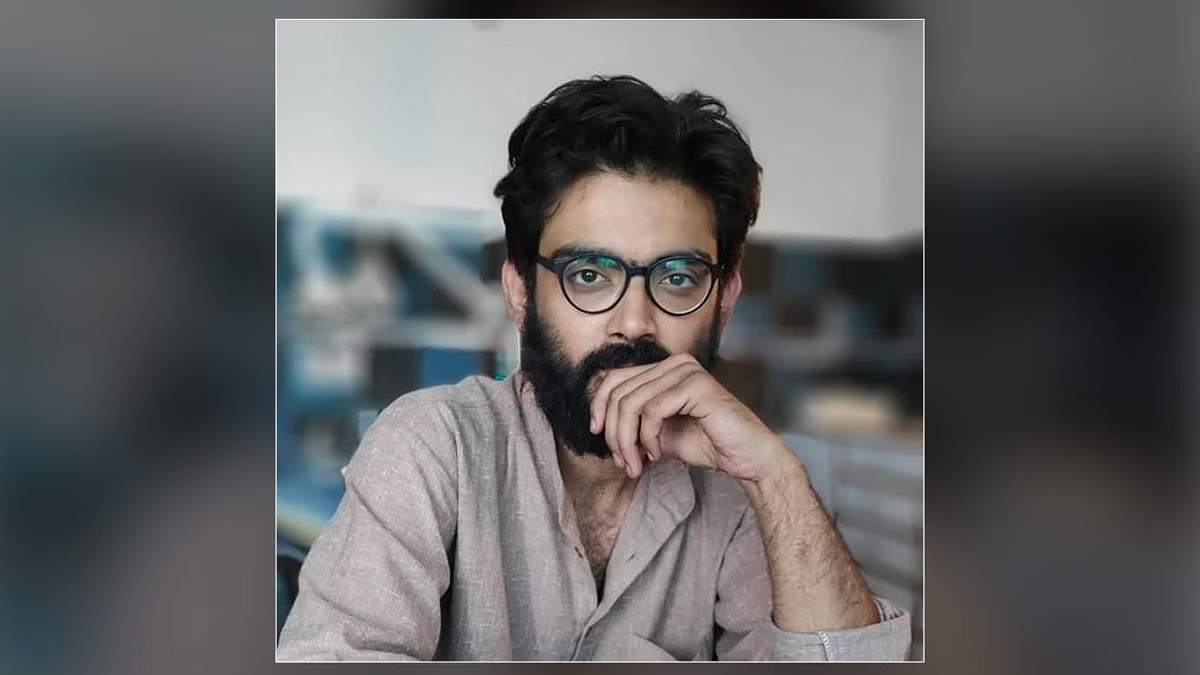Sharjeel Imam enters his fourth year of detention. He has been charged with cases of, now removed, sedition and the UAPA, including cases for inciting enmity between religious groups, and waging war. As of today, he has not been convicted of any charge and is in prison without bail as an under trial prisoner.
At the age of 34, Sharjeel Imam, who is currently a research scholar at Delhi’s Jawaharlal Nehru University is from Kako, a village in Bihar’s Jehanabad district. Imam studied his BTech at the Indian Institutes of Technology, Bombay and went on to serve as a Teaching Assistant at the same institute, following which he worked as a programmer in Copenhagen. Imam decided to further his education and in 2013, he enrolled in a Master’s program in Modern History at JNU after which he undertook an M.Phil. Programme in Modern Indian History, and a PhD. His MPhil thesis was titled ‘Exodus before Partition: The Attack on Muslims of Bihar in 1946.’
In December, during an anti-CAA protest at Jantar Mantar, Imam delivered a speech characterising the CAA as an assault on Muslim citizens of India. Furthermore, he advocated for a Chakka Jaam, arguing it was a well-tested means of democratic protest around the world to bring the attention of the authorities to address public demands.
Later, the Delhi Police used one of Imam’s speeches promoting the Chakka Jaam as evidence to file a case against him. They have accused him of aiding the February 2020 Delhi pogrom which saw over 40 people, mostly Muslims, killed in north-east Delhi.
Charges of sedition were levelled against Sharjeel Imam following the widespread dissemination of a two-minute excerpt from his speech at Aligarh Muslim University on January 16. This snippet was broadcasted by right-wing news channels and extensively shared on social media platforms on January 24, including a segment on Arnab Goswami’s Republic World. Right-wing media outlets interpreted the clip out of context and tried to portray him as an Islamic fundamentalist, subjecting him to a media trial. While in prison, like many other prisoners, he contracted COVID-19 in 2020. To which he stated, in an interview to Ajaz Ashraf, “My fear was not that I would die without meeting my family. It was rather that I would not be able to prove that I am not a terrorist.”
According to a report by The Wire, Imam has eight cases registered against him out of which he has been given bail 5 of them. For one of the remaining cases, he has never been arrested, and the other remaining cases are of the UAPA. According to the same report, Imam’s brother, Muzammil Imam, has stated that his bail plea has been listed about 46 times in the courts in the past four years.
Court Proceedings
Five Indian states namely Assam, Uttar Pradesh, Manipur, Arunachal Pradesh, and Delhi had taken legal action against Imam. Assam Police registered an FIR citing UAPA and IPC sections. The same day, Aligarh Police in Uttar Pradesh charged Imam with sedition. Manipur Police filed an FIR for offences like waging war, sedition, and vilification. Arunachal Pradesh’s Itanagar police filed an FIR for sedition and promoting enmity and Delhi Police filed an FIR for sedition and promoting religious enmity.
In November 2021, Imam was granted bail by Allahabad High Court for his AMU speech. The court stated that his speech did not amount to calling for violence. He was granted bail by a single bench comprising Justice Saumitra Dayal Singh sections 124 A (sedition), 153 A (promoting enmity between different groups) as well as a few other sections of the IPC.
In March 2022, Delhi High Court issued notice on his bail plea, noting that sedition required call to violence, “why should he not be granted bail?”. However, the Delhi High Court set aside a trial court’s order, to discharge Sharjeel Imam, Safoora Zargar, Asif Iqbal Tanha and eight others in the Jamia violence case.
In September 2022, Imam was granted bail by a Delhi court for allegedly making inflammatory speeches during anti-Citizenship Amendment Act (CAA) protests in 2019. He was granted bail under the Code of Criminal Procedure’s Section 436A. The provision details bail for a person who has gone through detention for up to one-half of the maximum sentence specified for an offence during the trial period.
In November 2023, the judge presiding over the case was discharged and it was decided that the bail plea for the case would be heard afresh.
In January, 2024, the High Court directed the Delhi police to ask why Sharjeel Imam can’t be treated equally with those granted bail. As of now, Ishrat Jahan, Asif Iqbal Tanha, Natasha Narwal and Devangana Kalita have been granted bail in the case in 2021. The Delhi police has responded that it is for Imam to convince the court, and not up to the prosecution.
Related:
Opposition to the CAA is rooted in its discriminatory nature.

